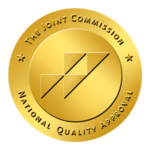Treating Alcohol Abuse: The Crucial Role of Intensive Outpatient Programs

Alcohol abuse is a widespread issue that affects millions of individuals and their families around the world. The negative impact of excessive alcohol consumption can extend beyond physical health, affecting mental well-being, relationships, and overall quality of life. Fortunately, effective treatment options are available to help individuals overcome alcohol abuse and reclaim control over their lives. Among these options, intensive outpatient programs (IOPs) have emerged as a valuable and flexible approach to addressing alcohol addiction. In this article, we will explore the importance of intensive outpatient programs in treating alcohol abuse and their role in promoting sustainable recovery.
Understanding Alcohol Abuse
Alcohol abuse is a complex condition characterized by the excessive and harmful consumption of alcohol. It can lead to a range of physical and psychological health issues, including liver damage, cardiovascular problems, depression, anxiety, and more. Overcoming alcohol abuse requires a comprehensive and individualized treatment approach that addresses both the physical and psychological aspects of addiction.
Alcohol abuse is a complex condition characterized by the excessive and harmful consumption of alcohol. It can lead to a range of physical and psychological health issues, including liver damage, cardiovascular problems, depression, anxiety, and more. Overcoming alcohol abuse requires a comprehensive and individualized treatment approach that addresses both the physical and psychological aspects of addiction.
The Role of Intensive Outpatient Programs (IOPs)
Intensive outpatient programs (IOPs) have gained prominence in recent years as a crucial component of the treatment continuum for alcohol abuse. These programs offer a structured and comprehensive approach to recovery while allowing individuals to maintain their daily responsibilities and commitments, such as work, school, or family obligations. IOPs strike a balance between the intensity of inpatient treatment and the flexibility of outpatient care, making them an appealing option for many individuals seeking help for alcohol abuse.
Key Benefits of Intensive Outpatient Programs
- Structured Support: IOPs provide a structured framework for recovery, including individual and group therapy sessions, psychoeducation, and skill-building exercises. This structure helps individuals develop coping strategies and tools to manage cravings, triggers, and stressors without the need for continuous residential care.
- Flexibility: One of the standout features of IOPs is their flexibility. Participants can attend therapy sessions during evenings or weekends, allowing them to fulfill their daily responsibilities while receiving the support they need.
- Real-World Application: IOPs emphasize real-world application of newly acquired skills. Participants can immediately implement what they learn in therapy sessions into their daily lives, enhancing their ability to navigate challenging situations and maintain sobriety.
- Community and Peer Support: Group therapy sessions within IOPs foster a sense of community and peer support. Sharing experiences and challenges with others who are on a similar journey can reduce feelings of isolation and provide valuable insights.
- Family Involvement: Many IOPs incorporate family therapy sessions, which involve loved ones in the recovery process. Family support can play a significant role in an individual’s success in overcoming alcohol abuse.
- Continuity of Care: IOPs offer a continuum of care that extends beyond the initial stages of recovery. Gradual transition from more intensive treatment to less intensive care helps individuals adjust to life after rehab and reduces the risk of relapse.
- Relapse Prevention: IOPs equip participants with relapse prevention skills and strategies to recognize triggers, manage stress, and avoid high-risk situations.
Treating alcohol abuse requires a comprehensive and personalized approach that addresses the physical, psychological, and social aspects of addiction. Intensive outpatient programs (IOPs) have emerged as a valuable treatment option that combines structure, flexibility, and community support. By providing individuals with the tools they need to navigate real-world challenges while receiving professional guidance, IOPs play a pivotal role in promoting sustainable recovery from alcohol abuse. If you or someone you know is struggling with alcohol abuse, considering the benefits of an intensive outpatient program may be a step towards a healthier and more fulfilling life.





